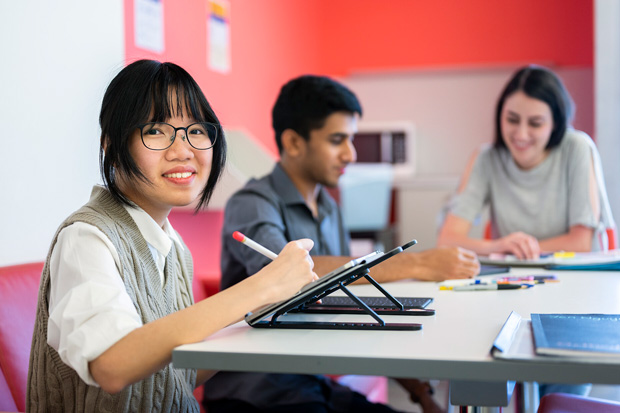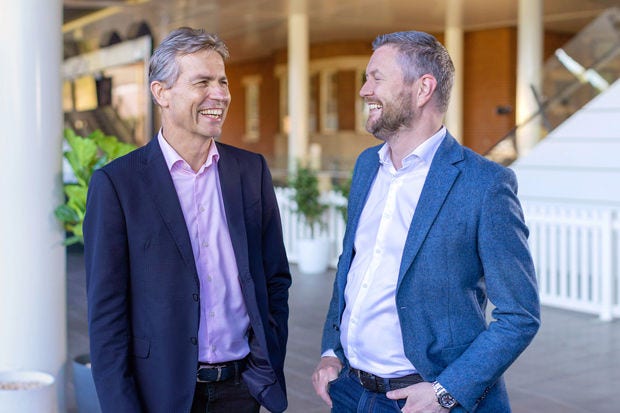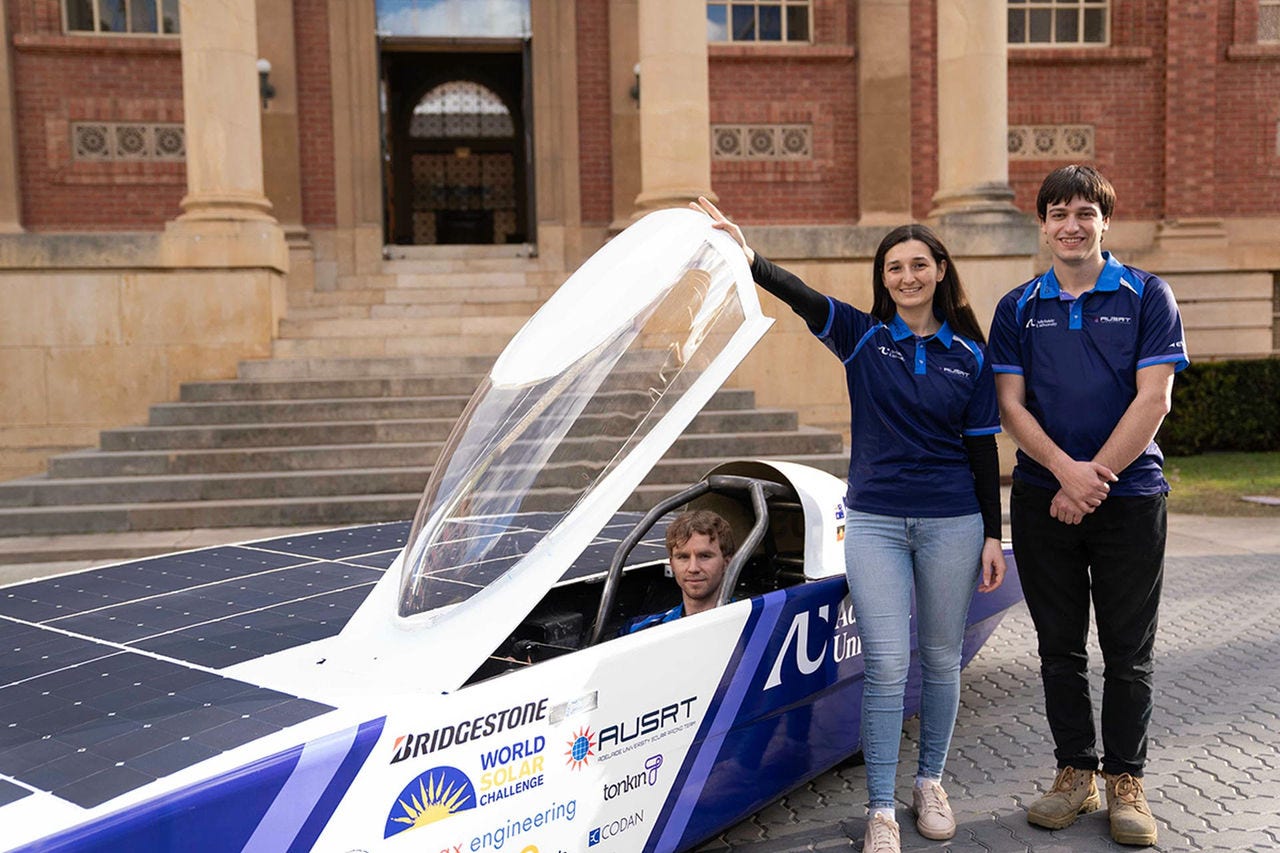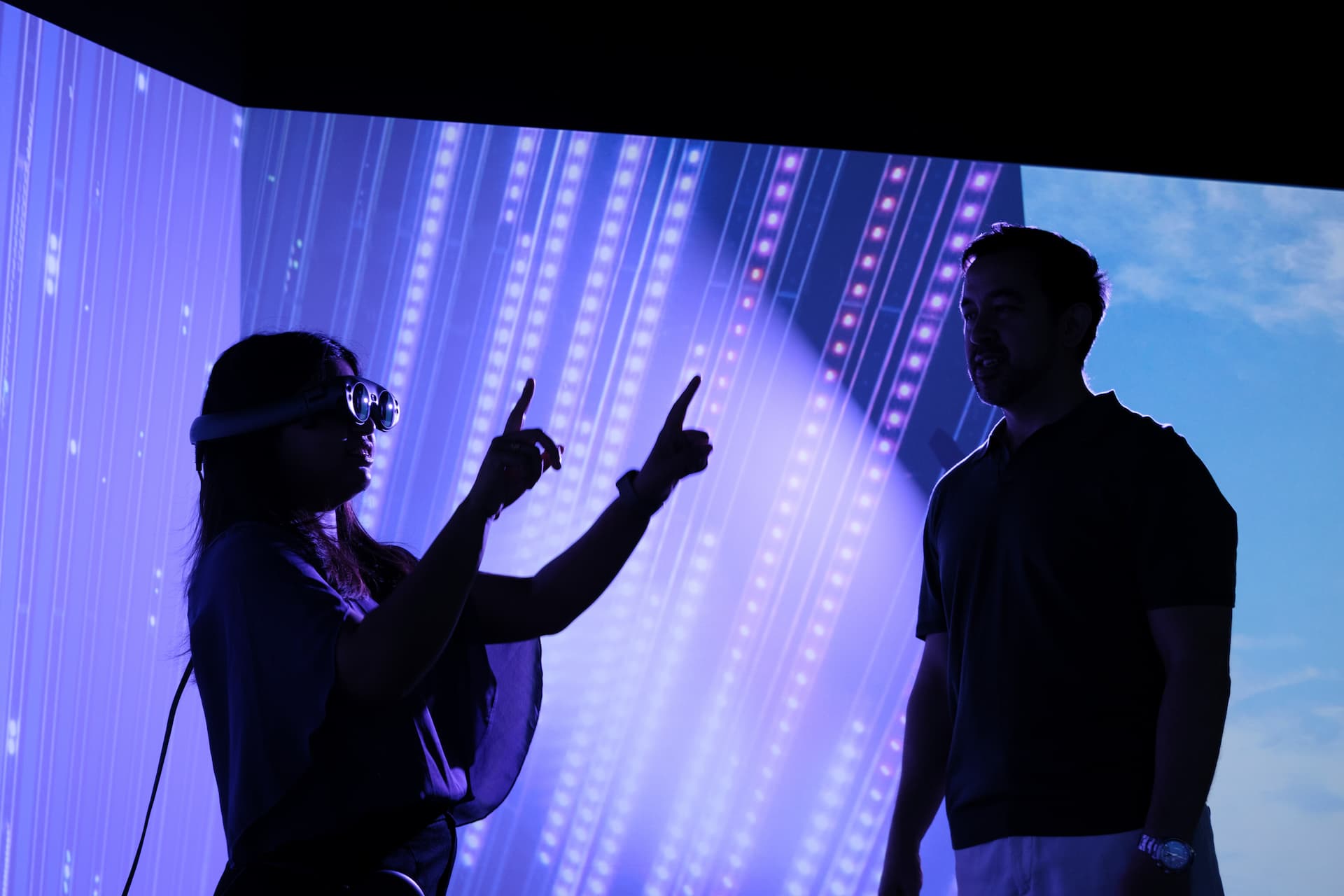In an era marked by rapid technological advancement and a deeper understanding of diverse learning needs, we have arrived at a point of much needed re-evaluation and reinvention. The call for more inclusive and dynamic approaches to learning has never been louder.
How do we know this? Because the new Adelaide University is setting out to deliver the most contemporary, accessible, and future-focused curriculum in the nation. And the research stacks up.
The medieval model of teaching that positions educators as sole proprietors of knowledge, where students participate merely as passive recipients, is fast becoming obsolete.
The essence of education can be found in text and context. In today’s world, text is digital – it’s always on and ubiquitous – but context is where true knowledge transfer resides. We’ve already seen an evolution in school classrooms, and so too, the expectations of future students.
Modern learners deserve active, collaborative and supportive learning environments where they can apply knowledge and engage in meaningful interactions – they also want (and quite frankly, need) greater flexibility.
And that’s why we’re rethinking our approach to augment the conventional lecture format with other active learning strategies.
At Adelaide University, the vast majority of learning will be delivered face-to-face across our large campus footprint. Students will gain discipline knowledge and experience through practicals, tutorials, studios, seminars, clinics and workshops, along with extensive work integrated learning supported by our leading academics and industry partners.
Our approach will build on the cutting-edge learning methods innovated at our founding institutions, such as working at a microbrewery to teach chemical engineering students; dental simulations that let students work on “real teeth”; or “escape room” style simulations that prepare nurses for the pressure of the operating theatre.
Let’s be clear – we’re not saying goodbye to lectures. We’re investing and asking; how can we do this even better than before? How do we make sure that our teaching meets the needs of contemporary learners in a way that also prepares them for the careers of tomorrow and what employers want? This isn’t a new phenomenon, universities around the world are embracing change – as we have throughout the evolution of teaching. From slide rules to logbooks to scientific calculators, from dissections to 3D simulations, from graph paper to computer-aided design.
In nearly every course, the learning format is being redefined to include some self-paced learning modules with exceptionally high quality digital content and interactive activities like online polls, simulations and gamified elements – and capped off with in-person exploration and learning. Text and context.
However, there’s not a one size fits all approach. Learning will be tailored to the needs of each program, each cohort and each student – it’s a compelling proposition.
The creation of Adelaide University presents an unprecedented opportunity to modernise a whole curriculum whilst respectfully retaining time-honoured elements that still serve our students well. We can redefine and reimagine the teaching and learning experience, drawing on our more than 180 years of collective experience, to bring the best forward for future generations of innovators, entrepreneurs and global citizens.
Whether you see technology as a friend or foe, it’s here to stay, and it’s changing us as individuals – along with our workplaces, and society as a whole. And we can’t forget the impact (and opportunity) of artificial intelligence. AI has the ability to do big things, to solve some of the most pressing challenges of our time, and to generate $4.4 trillion to the global economy by 2030 alone. Industries and societies around the world are leaning in, and so must we.
Our State stands for progress – we always have. And as we stand again on the cusp of transformational change, Adelaide University will be at the fore, driving stronger educational and research outcomes, which will secure economic growth – a prerequisite for social cohesion.
Professor Peter Høj AC and Professor David Lloyd are co-Vice Chancellors of Adelaide University.



